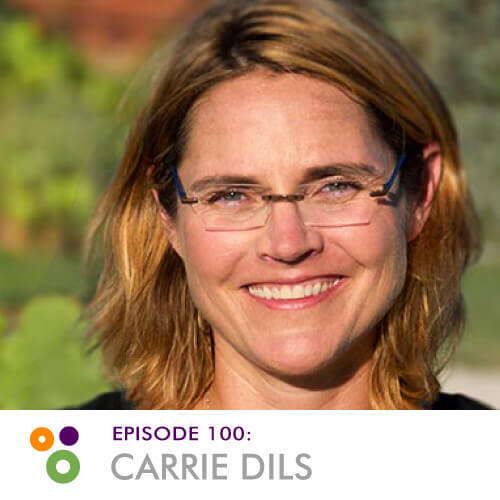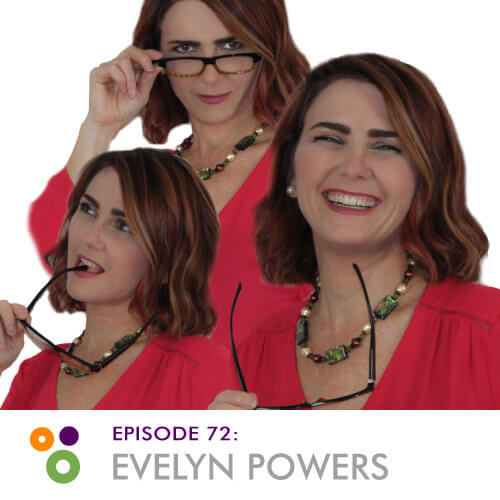Episode 132 – Pritesh Vora

Podcast: Play in new window | Download
Subscribe: RSS
Introducing Pritesh Vora
Pritesh leads growth marketing and operations at BlogVault, MalCare, WP Remote. Previously, he co-founded and sold Uninstall.io. He’s an entrepreneur at heart who loves challenging the status quo. Pritesh says he is a hardcore growth geek.
Show Notes
Twitter | @priteshvora
Website | WPRemote
Website | Malcare
Website | BlogVault
Preferred Pronouns | He/Him
Episode Transcript
Tara: This is Hallway Chats, where we meet people who use WordPress.
Liam: We ask questions and our guests share their stories, ideas, and perspectives.
Tara: And now the conversation begins. This is Episode 132.
Tara: Welcome to Hallway Chats. I’m Tara Claeys.
Liam: And I’m Liam Dempsey. Today we’re joined by Pritesh Vora. Pritesh leads growth marketing and operations at BlogVault, MalCare, WP Remote. Previously, he co-founded and sold Uninstall.io. Here’s an entrepreneur at heart who loves challenging the status quo. Pritesh says he is a hardcore growth geek. Welcome, Pritesh. Thank you for joining us.
Pritesh: It’s my pleasure. Thank you, Liam and Tara. It’s a pleasure to be here.
Tara: Nice to have you here today. Can you tell us more about yourself, Pritesh?
Pritesh: Absolutely. Hey guys, I’m Pritesh, and we are WordPress plugin makers. I’m from the absolute other side of the world, from Bangalore, India. It’s just about past evening here. I lead growth, marketing, and operations, as Liam said, for four of successful WordPress plugins of our company.
The first one is BlogVault. It’s a cloud-based WordPress backup and staging service. The second is MalCare, which is a high-performance WordPress security solution. Third is WP Remote, which is a new Gen WordPress site manager solution for agencies. And lastly, Migrate Guru, which is a completely free migration plugin for the WordPress community. So that’s what we do.
Tara: I just learned about Migrate Guru last week. And man, it was amazing. It was great. I’ve used BlogVault with different hosts, but I hadn’t been aware of that plugin. And it was a real lifesaver for me last week. So congratulations on that. Pritesh, tell us your background. How did you get started and all this tech stuff in Bangalore?
Pritesh: That’s an interesting story. I’m an engineer by background —a software engineer. India is a decently sizable country. So, I was born in the eastern part of India, born and brought up, did my education in the eastern part of India, completed my engineering, and then got off. I was placed, through our college campus, in one of the largest software companies in India, where I had to go from east to the western part of India, in Mumbai, which is the largest city in India.
I spent a few years there with that company. I got one of the best opportunities while staying in that company, and I stayed in United States for a few years, and went through Europe and United Kingdom. After spending around five, six years, it just felt like there was something which was missing in me. And I have always wanted to do more, contribute more, find ways in which I can contribute more, and make someone’s life better. And that’s when I jumped a ship from a multinational company. I was pretty comfortable in that place, and then jumped the ship from that multinational company and joined a really, really, really small startup, which was based out of one of the most premier institutes of India in the south of India.
So I started from east, went to the west, and then moved to the south of India. We were working out of a small college dorm. Just two people trying to make a difference in the world at that point of time. With all the enthusiasm and excitement, the only thing we wanted to do was go by Steve Jobs’ words: “make a dent in the universe.” I can now look back at it and smile and say how naive that was, how childish we were. But I loved the energy and enthusiasm and the fun. The most important part was the fun that was involved in building that product startup and scaling it and growing it to do certain things.
For various reasons, we scaled that startup, and then eventually we had to shut it down. It did not scale to the levels that we wanted. And that led me to get in touch with a couple of other colleagues who I had been working with. And that’s when I made my move to Bangalore. So, I came to Bangalore, we all got together, and we built another product called uninstall.io. It was the first of its kind product which helped detect mobile app uninstallations, and helped, essentially mobile app owners.
So if you are an Uber, our product would let you understand who has uninstalled your app and why did they uninstall your app. So it was analytics around mobile app uninstallations. Again, it was a childlike moment when, with all the enthusiasm and excitement, we build this product and we scaled it. We were part of Microsoft’s accelerator. We raise some money around it from some of the prominent investors in the country and outside, including 500 startups from the United States. And eventually, the business was doing decently well, and then we got a nice opportunity where we were acquired by a company in Southeast Asia.
All this while, I’ve been working on either mobile-related products, where mobile is at the center of everything that we do. Funnily enough for me, mobile was a really advanced technology or structure that we were working on. Then I met Akshat, who is the founder of this company, after my acquisition. He threw me a challenge of, you know, that we are about WordPress-based company.
I’m going to be honest here. Literally, I had no clue about what WordPress is. And I used to think, “Isn’t that a really old technology? Isn’t that something which is used by people who are not able to get hands-on the latest like Angular.” There were a lot of buzzwords going around, right? NodeJS, AngularJS. So I had my own sort of apprehensions thinking, “I don’t know, do I really want to go take a step back and look at a technology which has been stagnant for quite some time, essentially, PHP related products? Or do I want to move to the next stage of technology, which is AI and ML, machine learning, and all those things?”
But Akshat told me more about WordPress as an ecosystem as a product, the impact it has on the power of publishing that’s there. Although I’m going to be honest. I was still not convinced about all of that. But heck, yeah, I thought, “You know what, it’s a good challenge.” The product has been growing, the product is solid, the team is solid. They’re getting decent traction. And it’s a real challenge to see take them from where they, from X to 10 X. And that’s the challenge which excited me and I joined this company, I think almost two and a half years ago, when there was just BlogVault—that’s all we had as a product.
After seeing the inside of WordPress, after spending some time, for more than two years now in WordPress, I understand how it feels and what the community is, and how wrong was I to just measure it based on technology.
Liam: Pritesh, that’s quite a story you’ve shared with us, and there’s a lot of things I could spend all day chatting with you about. I do want to go back to one of your earlier statements that I wrote down. And I think it’s probably the biggest understatement we’ve ever had on this show. And you said, “India is a decently sizable country.” That’s hilarious. You’re awesome. I love it.
But your journey to WordPress is really interesting to me because I am not a tech-focused engineer. I am a designer and a marketing consultant. Tara has a similar lien to me. That you kind of came to WordPress with what might be perceived as kind of a typical “Oh, it’s WordPress. It’s old. It’s out of date. It’s PHP. It’s simple.”
And then you’ve learned and really enjoy it now. I wonder about, it sounds like your new role in terms of growth-focused is less code-driven, code-focused, programming-focused and more kind of marketing community-focused. Is that correct? And if so, how do you feel about that transition? What’s been that been like?
Pritesh: For me, product is as the center of everything. And having an engineering background, a software engineering background gives me that edge where I’d love to stay close to technology. I’ve built, to the extent even when I left programming per se, the bug inside me made me develop a few automated Excel tools. Because I just love automating things. That’s why I’m always very close to the product as such.
For my own startup, the startup before that, I was still in the marketing and business and growth role, where it’s a small team—you’re practically everyone, barring the coding part. And you play all the roles, including support. So the product has been at the centerpiece of everything. Things have really not changed.
I want to use a product and be convinced and love and take that passion into the market. And to be passionate about something, it’s extremely essential for me to fully eat my own dog food. It’s not the best way to describe it, but yeah, until I eat my dog food, and I realized I cannot translate that passion into growing or translating it into the communication that we put into it. Does it answer your question?
Liam: Yeah, it totally does. It totally does. It totally does. And those non-tech leaning folks who have never heard the phrase “to eat your own dog food,” which I remember the first time I heard it 10 years ago, and you just go, “What?” it means to use your own product or run your own code and use it in your own life. Pretty much eat what you cook kind of thing. I’m sorry, Pritesh. I think we stepped on each other. I’ll let you talk. Go ahead.
Pritesh: No, that’s it. I’m just saying I’m not sure if I like what I cook.
Liam: Let me ask you a question about the WordPress community because if you shared with us it was clear that you weren’t familiar with it, and you started looking at it from a tech standpoint. But Akshat was kind enough to slow down and chat you through that a little bit. I’m guessing you’ve probably been to at least one WordCamp now. And if so, what was that like for you? What was your first WordCamp like?
Pritesh: Wow. That’s quite an experience. You hit the nail right on its head. Me being an outsider has been a very different perspective on how we look at things. There are advantages as well as disadvantages because I do not understand a lot of nuances related to WordPress, which are so commonly taken for granted. I think I joined mid-year, in June or July, and spent a few months just trying to set up things and understanding of what we do, build the basic foundations. And then Akshat and I spoke and he said, “You know what, we should go attend WordCamp US.” I’m like, “Okay, you know what, that’s fine. Let’s do that.”
And so, the first WordCamp that I ever attended was WordCamp US. I had not attended any local or any regional WordCamp. And the first one that I made was to WordCamp US. That in itself was quite an experience for me. I’d spoken in a lot of conferences when I was in the mobile ecosystem because it was part of one of the strategies to grow our business as well. And the atmosphere of those conferences versus what you see here in a WordCamp. It’s just like North Pole, South Pole. The whole mindset is different.
The normal conferences have these sales mindset, let’s get business done mindset versus a WordCamp, which is more like a family picnic and mentoring session. It’s more like an accelerator or a camping session, where there’s more of a personal feel to it than business.
Tara: I love the idea of a like family picnic. That’s a great analogy it is a lot like that. And the more you go, it’s like a family reunion because you see people you’ve met many times before. So that’s a great analogy. I love your passion for what you’ve done and startups and the energy that you convey, that you bring to and get from these types of projects. Pritesh, I’d like to ask you a question we ask everyone which is about success and how you define success. Can you share with us your definition of success, what it means to you?
Pritesh: Sure. This question, even when I was filling the form, it threw me off a bit, to be honest. You do keep thinking about it. You don’t get asked such things so regularly, so often. When I was trying to fill the form, it gave me an opportunity to just think a little bit. When I filled the form, I just felt something as a placeholder, to be honest. But then I went back and I really thought about it. You know, what does it really mean after a few years that I’ve spent in this company and the kind of work that I do.
So, success, I equate it to something that can bring you joy or happiness. First of all, it’s extremely subjective. But the way I would see it is if we can unite or get a bunch of people together to help achieve a mission that can make a difference in someone’s life. It doesn’t need to be millions of people. But as long as it makes a difference in someone’s life by uniting a bunch of people, achieving a mission, I think I would call that a success.
Tara: You sound like a leader and as somebody who enjoys working with other people. I know right now we are recording this during social distancing and Coronavirus times, but do you work from home alone or do you work in an office with other people?
Pritesh: Wow, that’s one question which…you’ll not believe it. It’s something which is probably common in western countries. But for us, we are a company which is culture towards working from the office. Every one of us is placed in an office together, working together from office space. So when this Corona thing happened, it was like we had to make an overnight adjustment to working remote.
And I’m going to be honest, it wasn’t easy. We are not used to working remote. We are so used to seeing people face to face, doing that verbal communication, fighting about something, getting someone from the team, and asking them to get into a room, “Okay, let’s try and do this. Let’s get this thing done. Get this out of the way.” As in how things move along. There’s a lot of momentum, a lot of energy when you are in a physical space.
So suddenly when we had to go remote because of the Coronavirus virus situation, none of us were prepared. None of us were ready for it. So it took us almost a week to just get used to the fact of how do we align ourselves, how do we align our goals while working remote? The way we started initially, it was like, for every small thing we would set up a meeting. We would set up a call, we would set up a meeting to discuss everything because we are so used to that doing that in the physical space. The colleagues are sitting right across the table and you get into a verbal communication and nail it out.
But now gradually we’ve learned the hard way that there’s no better thing than written communication. Written communication can take care of avoiding so many meetings and can make you usually productive. And so many meetings can just be avoided if you master the art of written communication.
Liam: Yeah, that transition from office space to remote is interesting. I was out just riding my bike around my neighborhood in suburban Philadelphia in neighboring neighborhoods and bumped into a friend. And he had a very similar experience to what you had, Pritesh, where he goes into the office day in day out for years, and all of a sudden, he’s at home and he’s not seeing anybody. And the normal way of the way that his company got things done and did the day to day stuff is totally upended. And so we’ve adjusted. And he’s finding some value in it now, but it definitely threw him for a loop in the first week or two as well. So I think that experience is probably somewhat common across the world.
Pritesh: I’ll tell you what, there’s a small difference, especially when you work in India. I don’t know about the rest of the world, but I can share what happens in India. Culturally, there are a lot of families who still live with their parents. Either the son or the daughter is doing well and they live in a different city than their home city, and they get their parents from their home city to the new place. So what happens is, traditionally, parents are used to seeing their kids go out every day and work, you know, get out of home at nine o’clock, get back by seven o’clock. You know, you’re expected to go out.
So if you don’t go out, it is assumed that something’s gone wrong in office. Either you’ve been let go or something’s going weird. So the first few days, you know, you suddenly start seeing weird reactions. As in they’re confused. As in what the hell is happening? Why is he working from home? Doesn’t he have any work? Has he been fired? Is he out of work or what is going on?
Liam: That’s pretty funny. Thank you for sharing that. Let me ask you another question that we like to put upon our guests. And it’s about advice. Pritesh, you shared that you grew up in the east of India, you move to the west of India, and then you moved south, and now you’re kind of in central. So you’re a man about India, if I can put it that way. And I imagine in your life, in your journeys, in your travels, you’ve picked up some advice along the way that you’ve found useful. I wonder if you can share the most valuable advice that you’ve ever come across or have been told and successfully implemented in your life?
Pritesh: Sure. Something that I learned the hard way. I’m not going to say I learned it the smart way. But something that I learned the hard way was about two things. First was that skill trumps knowledge. In my early days, I used to just keep reading stuff, watching stuff hoping to learn new things. Let’s say SEO. I would put in hours and hours just trying to learn and learn and learn. And I would wait until I’ve consumed everything before I moved an inch. And by the time I’m finished learning, I suddenly realize that I’ve lost almost three months or six months just trying to learn it, and I’ve done nothing. I’ve achieved nothing. And that made me even more angrier.
This was a pattern I started seeing that I was just trying to avoid doing it, and I was in the notion that if I learn more and more, I’ll automatically be able to do better. Unfortunately, even after spending hours and hours just trying to gain knowledge or trying to learn, when it came to implementation, even after it was three months, it still felt like day one for me. All the time that I spend did not just make me suddenly better right on day one. It was not like I was performing at the best when I started implementing it on day one.
When this happened, I got really angry with myself. I was like, “I’ve spent so much time. I wasted so much time doing this, just trying to learn.” And when I started actually implementing it, I was still on day one and I have not achieved what I could have achieved if I spent less time. So I made a resolve—and this was something which I discussed with one of our colleagues as well from the industry—and I said that skill is more important than knowledge. Skill will only come once you start doing things rather than just learning things.
It’s extremely important to just go out there and do it than wait for the perfect time or moment until you have known everything. And you’ll think that once you know everything, you will be able to do it better. But that’s never going to happen. So that was a very important lesson I learned. And it really stuck with me because I am able to implement that today. And I see that even if you put like a whole week just learning, and when we go to implementation, we see we’re still on day one, and 90% of that project is still unknown until we start implementing it. So now we made a rule, we run small growth experiments, we make certain hypothesis, but our aim is to move fast, fail fast, and win fast. That’s one thing which has stuck with me for long.
Tara: That’s great advice and insight. I totally agree with that. I think there is such an endless amount of learning that can be done. I mean, SEO, for example, how many free SEO courses and webinars do I sign up for because I think I’m going to finally have all the answers. But until you’re actually doing it, you really don’t know what you’re doing. I mean, you can speak about it because you’ve absorbed all of this information, but it doesn’t make you good at it. I guess it’s sort of having perfect be the enemy of the good you. It’s the same concept of knowing everything before you do it. It’s you’re never going to do it and you’re never going to do it well until you put it into practice. I think that’s excellent advice. And I totally agree with that.
I also like the – what did you say? – fail fast. You have to not be afraid to fail when you are executing things that you might not completely know. You’re going to probably break things and make mistakes. And you have to not be afraid of that. So thank you for sharing that advice.
Pritesh: I’m happy to.
Liam: That’s especially true in technology, right? That which we learned today, you know, SEO, Google changed something when we go to sleep. So wake up and it’s the algorithm is different, the user interface is different, best practice is different, development processes, Gutenberg. There’s always something new and different and changing. That if we try to know everything, it’s some kind of attempt at learning that will never succeed. Excellent advice. Thank you, Pritesh.
Pritesh: Sure. Glad to contribute.
Tara: It also I think carries on to the entrepreneurial spirit that you have as well. So your role with BlogVault with Akshat’s company, I assume has evolved. Do you feel like you would like to start another startup on your own again or was your experience doing that once enough?
Pritesh: It’s like tasting blood. Once you’ve tasted it, you want to go back and do it again. I don’t know when, but I have a mission here. Until I accomplish that mission, I’m going to definitely stick around. Akshat did give me that opportunity. He’s been kind enough to give me that freedom as well to do it. And once I hopefully achieve that vision or mission that we have in mind, then I’ll start thinking about it. But definitely, it’s something which is going to happen sooner than later.
Tara: Well, I’m sure you’ll keep adding value to that company. And I look forward to seeing what you do from here on out, Pritesh. We are unfortunately out of time, and so we need to wrap it up. Can you share with us where people can find you online?
Pritesh: Sure. I’m there on Twitter, although I’m not so active. @priteshvora on Twitter.
Tara: Thank you so much for joining us. Great meeting you.
Pritesh: It was a pleasure. Thank you guys so much for inviting me and making it so comfortable. It’s been extremely informal. And I really appreciate you guys for doing this without any expectations. I mean, it’s brilliant. And that’s why I love WordPress. I’ve grown to love WordPress as a community.
Tara: That’s very kind. Thank you. We enjoyed hearing your insight and story.
Pritesh: Thank you so much. Thank you so much, Liam.
Liam: Thank you, Pritesh. Thanks so much for your time. I really appreciate it. You’re delighted that you’re part of the WordPress community, despite the old technology, haha. And I look forward to seeing great things from your work and your career. Thanks again for joining us.
Pritesh: Thank you so much. Bye guys.
Tara: If you like what we’re doing here – meeting new people in our WordPress community – we invite you to tell others about it. We’re on iTunes and at hallwaychats-staging.ulpgsyz6-liquidwebsites.com.
Liam: Better yet, ask your WordPress friends and colleagues to join us on the show. Encourage them to complete the “Be on the show” form on our site, to tell us about themselves.





